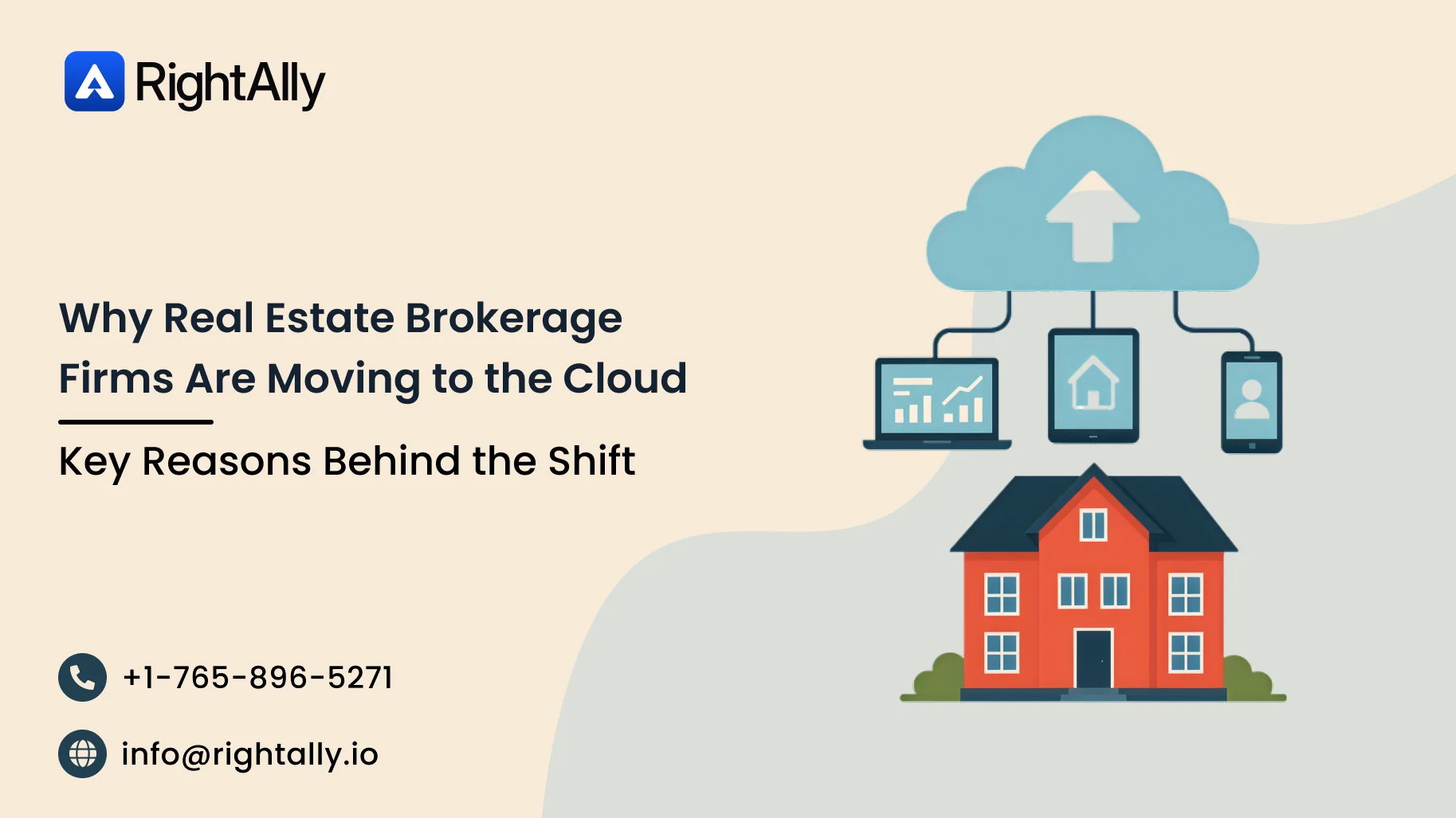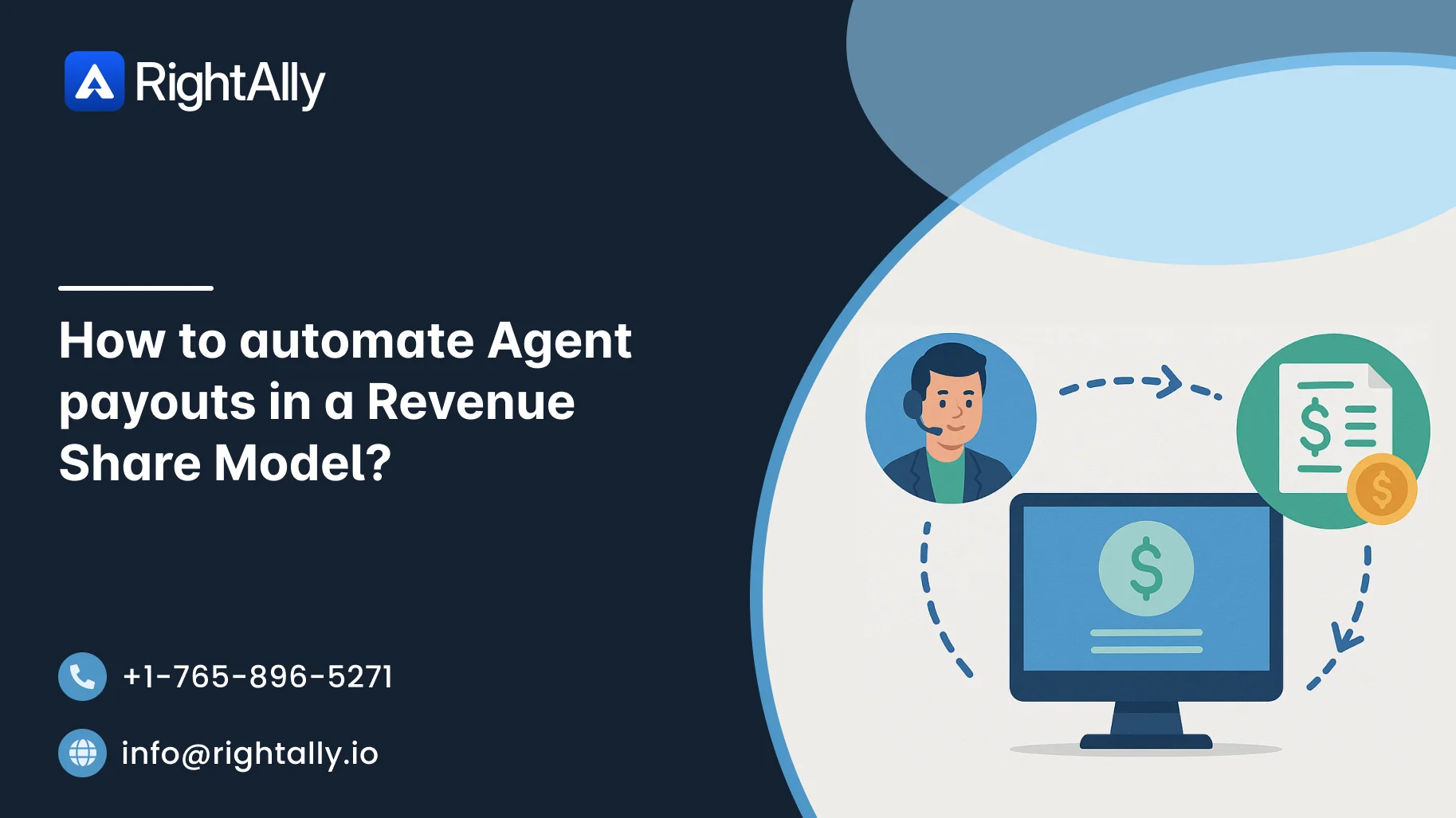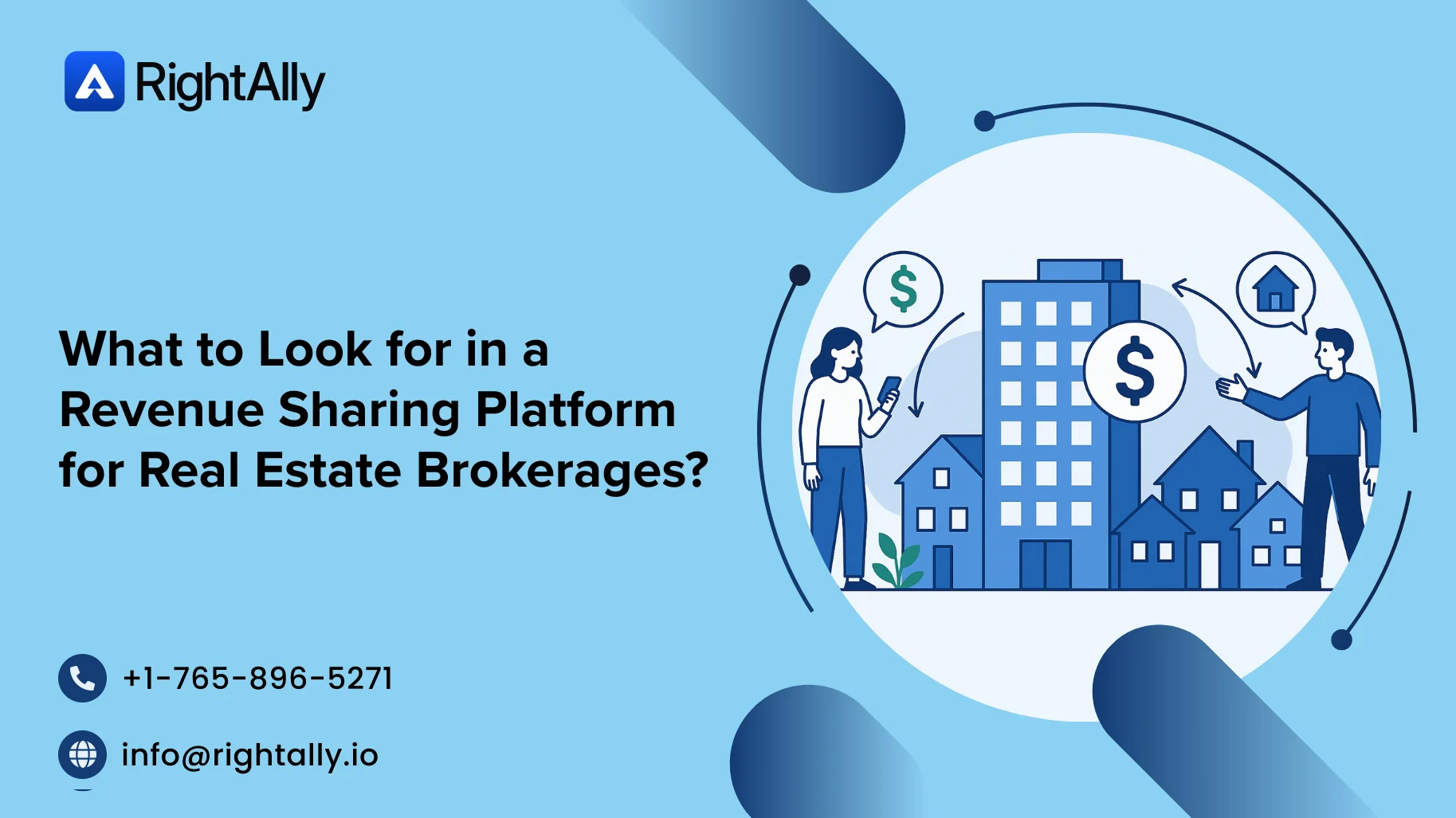Table of Content
- Introduction
- The Limitations of Spreadsheets for Real Estate Brokerages
- What Real Estate Brokerage Software Can Do That Spreadsheets Cannot
- Benefits of Moving Beyond Spreadsheets
- How to Transition Smoothly from Spreadsheets to Brokerage Software
- Real-World Case Study: Brokerages That Moved to the Cloud
- Conclusion
- Frequently Asked Questions
Summary
This guide explores the best real estate brokerage software alternatives to spreadsheets, highlighting why manual tools fall short for growing firms. Learn the limitations of spreadsheets, the advantages of dedicated brokerage software, and how to transition smoothly to cloud-based systems with real-world success stories.
You're reviewing monthly commission reports, and something doesn't add up. An agent's commission is something on Tuesday and something else on Friday, after your office manager "cleaned up" the spreadsheet. Sounds familiar?
You're not alone. A groundbreaking 2024 study published in Frontiers of Computer Science found that 94% of spreadsheets used in business decision-making contain critical errors, posing serious risks of financial losses and operational mistakes.
Real estate brokerages thrive on relationships, trust, and the seamless flow of transactions. Yet, behind the scenes, much of your work still runs on spreadsheets. Today’s real estate brokerage need software alternatives to spreadsheets. Spreadsheets were dependable for decades, but modern business has simply outgrown them. Brokerages need better and easier-to-maintain solutions.
The Limitations of Spreadsheets for Real Estate Brokerages
Spreadsheets are dependable when you’re just starting out. But as brokerages grow, the same tools that once felt empowering begin to hold you back.
1. Everyday Errors Add Up
Each transaction involves different splits, referral payouts, and caps. In a busy brokerage, one administrator might enter over 200 entries each week. And that's where the issue starts becoming pronounced. Peer-reviewed research finds errors occur in a few percent of spreadsheet cells, which means large sheets almost inevitably produce bottom-line mistakes. This kind of mistake can easily misstate splits or caps.
Even the most careful person will make mistakes such as missed decimals, misplaced formulas, or hidden logic errors. For brokerages, this can mean miscalculated commissions, delayed payments, or confusion among agents. In a commission-driven business, even a small underpayment can trigger disputes and churn—problems that are far more expensive than the original error.
2. Growth Breeds Complexity
A spreadsheet with 20 rows feels manageable. But what happens when your office grows from 10 agents to 100? Commission structures evolve, teams form, managers earn overrides, and incentives shift. With every layer of growth, spreadsheets become harder to maintain. Brokers often find themselves spending more time fixing formulas than growing the business.
If you consider revenue-share overrides and multi-tier payouts (e.g., models that share a major chunk of company dollars back with agents), a single broken formula ripples across tiers. Spreadsheets further create information silos that derail strategic decision-making. Without real-time update capabilities or chat functionality, team members work with inconsistent data. Granting proper access to different stakeholders is also tricky, while security risks increase when spreadsheets are shared via email.
3. Version Control Chaos
When multiple stakeholders make changes in different spreadsheet versions, confusion inevitably follows. The result? Multiple "versions of truth" that lead to miscommunications, missed opportunities, and costly errors. This problem intensifies as your brokerage operates across multiple regions and teams. Critical decisions may be made based on outdated information.
During audits, misaligned commission records vs. payments are explicit red flags. Version drift is one of the fastest ways to create such gaps.
4. Limited Automation capabilities
Spreadsheets excel at basic calculations and formulas. However, they fall short on automated alerts and process management. For instance, critical dates may pass without warning. Similarly, commission payments may be delayed, and renewal opportunities may slip through the cracks. The manual involvement for everything often means that insights arrive too late to be actionable.
5. Compliance Vulnerabilities
Regulatory requirements around transaction documentation, data privacy, and financial reporting are increasingly complex. Here, spreadsheets lack the audit trails and user-level permissions needed to demonstrate compliance during reviews. Often, auditing records of who accessed and changed what part of the data becomes a real challenge, making data integrity a challenge.
State regulators (e.g., California DRE) expect tight trust-fund control records and complete audit trails. Weak lineage on 'who changed what' turns a routine exam into a costly fire drill.
What Real Estate Brokerage Software Can Do That Spreadsheets Cannot
Modern brokerage management platforms are specifically designed to address the unique challenges that spreadsheets cannot handle effectively.
1. Automated Accuracy
Software removes manual steps from commission management. Instead of hand-entering formulas, commission plans are set up once, and calculations run automatically every time. This ensures agents are paid the right amount on time without fail.
This is pivotal in revenue-share models, where payouts are triggered when transactions settle in the enterprise system. Automation prevents downstream misallocations across tiers.
2. Real-Time Visibility & Reporting
Agents want clarity about their earnings. With modern dashboards, they can log in at any time to see pending deals, splits, and payouts. For brokers, automated reporting provides instant insight into office performance, cash flow, and recruiting ROI.
Firms running tiered compensation can forecast company-dollar and revenue-share exposure in-period, so leaders can adjust incentives before month-end rather than after agents feel shorted.
3. Built-In Compliance & Audit Trails
Compliance is essential to be eligible for NAR’s professional liability insurance coverage. NAR also emphasizes risk reduction and documented procedures to limit liability. Systems that have adequate approval cycles and log changes make oversight seamless.
Real-estate-focused software platforms help you manage this like a breeze. They handle your documents, log every change, track approvals, and create an auditable trail. This simplifies state filings and reduces the stress of regulatory audits. That’s much better than hunting through email threads and spreadsheet tabs as the need arises.
4. Scalable Commission Models
Revenue-sharing brokerages like eXp Realty have shown the appeal of flexible compensation models. Software allows you to design, test, and implement these plans with ease, whether it’s a cap system, tiered splits, or multi-level overrides. What once took hours in Excel is now accomplished in minutes. This matters if you’re courting teams with multi-level overrides or eXp-style revenue share. Revenue share solutions like RightAlly model those tiers for you so finance and recruiting see the same math.
5. Secure, Centralized Data
Brokerage platforms operate in the cloud, meaning your team works from a single, secure, centralized source of truth. No more worrying about lost files, outdated versions, or unsecured email attachments. Centralization also aligns with records-retention rules (e.g., Texas requires brokers to retain specified records for at least four years in a readily accessible format).
Beyond functionality, these advantages translate directly into business benefits.
Benefits of Moving Beyond Spreadsheets
The transition from spreadsheets to specialized brokerage software delivers measurable benefits across every aspect of brokerage operations.
1. Enhanced Operational Efficiency
By automating repetitive tasks like data entry, commission calculations, and report generation, brokerage software frees up valuable time that leaders can devote to strategic initiatives. Research by McKinsey estimates that 60% of businesses can automate up to 30% of their operations, saving a massive amount of time. This time, then, can be redirected to agent support, business development, and market expansion.
2. Improved Financial Accuracy
Accuracy is non-negotiable in revenue-share brokerages: a misposted company-dollar amount cascades through sponsor tiers, compounding both dollar errors and agent dissatisfaction. Automated calculations eliminate the errors that creep into spreadsheet-based commission processing.
This translates to accurate agent payments and reduced disputes while creating a high level of visibility and profitability. With integrated financial tracking, brokerages maintain real-time visibility into cash flow, expenses, and revenue trends.
3. Strengthened Compliance Posture
Real penalties exist outside licensing. Brokerages that miss or incorrectly issue Form 1099-NEC face $60–$330 per-form penalties (and $660 for intentional disregard in 2025). Built-in compliance features ensure that brokerages meet regulatory requirements automatically.
Automated payables and TIN validation help avoid that. Integrations with transaction management systems and accounting platforms on top of detailed audit trails, role-based access, and automated documentation also reduce compliance risks while simplifying audits and reviews.
4. Enhanced Agent Experience
Modern platforms provide agent dashboards where agents can track transactions, monitor commissions, and access resources independently. This transparency builds trust while reducing administrative inquiries. For recruiting, demonstrating sophisticated technology infrastructure positions your brokerage as a modern, professional organization committed to agent success.
Transparent, on-demand earnings views are a recruiting asset in competitive splits and help you retain top producers who expect consumer-grade visibility.
5. Scalable Growth Infrastructure
Unlike spreadsheets, which become increasingly cumbersome as volume grows, brokerage software is designed to scale seamlessly. Whether you're adding agents, expanding to new markets, or increasing transaction volume, the platform adapts without compromising performance or requiring additional administrative resources. As you expand, regulators still expect clean, reconciled records. Systems that reconcile to trust-account statements reduce the effort of multi-office audits.
How to Transition Smoothly from Spreadsheets to Brokerage Software
Change doesn’t have to be disruptive. With thoughtful planning, brokerages can adopt cloud-based operations seamlessly.
1. Conduct a Comprehensive Needs Assessment
Before selecting a platform, identify your specific pain points and requirements. Evaluate which processes (commission calculations, compliance tracking, agent onboarding) consume the most time and where errors most frequently occur.
Engage agents and staff in this assessment to ensure the solution addresses everyone's needs. Also, include audit readiness in your checklist. For instance, can you export a control record and transaction history that mirrors what examiners request?
2. Choose the Right Platform
Select software that specifically addresses your identified needs while offering the flexibility to adapt to your brokerage's unique processes. Look for platforms with:
- Intuitive interfaces that minimize training requirements
- Customizable features that match your commission structures
- Comprehensive reporting capabilities
- Integration options with your existing tools
- Scalable architecture that grows with your business
3. Implement Phased Data Migration
Rather than attempting a complete transition at once, migrate data in phases. Begin with agent information and commission structures before moving to transaction data and historical records. This approach allows for testing and validation at each stage, ensuring accuracy before proceeding. Pilot a small cohort of agents through one end-to-end settlement (including payout and 1099 cycle) to validate revenue-share math and reporting before the full changeover.
4. Provide Comprehensive Training
Invest in thorough training for all users, including your in-house staff and external agents. Combine formal training sessions with ongoing support resources like video tutorials, cheat sheets, and help documentation. Remember, short, scenario-based refreshers beat long lectures. They change actual behavior. Also, consider appointing "super users" within your team to provide peer support and encourage adoption.
5. Leverage Ongoing Support
Choose a provider that offers comprehensive implementation support and ongoing customer service. Ensure they provide adequate resources during the critical transition period and remain available to address questions and issues as they arise.
Real-World Case Study: Brokerages That Moved to the Cloud
Below are snapshots of brokerages that replaced paper/spreadsheet workflows with real estate brokerage platforms.
1. Better Homes and Gardens Real Estate Native American Group
A multi-office brokerage with 67 agents and ~950 transactions per year shifted from paper and non-integrated tools to a cloud back office with QuickBooks integration. The team migrated four years of records, automated compliance checklists, and now saves roughly 6 hours per week (equivalent to 312 hours per year) just from automated reporting, freeing staff to focus on revenue work instead of rekeying and reconciling.
2. Berkshire Hathaway HomeServices Elite Real Estate
After moving its paper-based offices onto a transaction platform, this 150-agent brokerage now saves $30,000+ annually in stationery alone. This is without counting the time saved on document routing and audit prep.
3. PAK Realty, Florida
PAK Realty grew from 10 to 800 agents in 12 months by pairing revenue sharing with a strong tech stack, not salary guarantees or signing bonuses. Revenue share turned agents into the brokerage’s best recruiters, creating compounding growth.
4. Best Homes, California
Best Homes cut agent churn by approx. 40% after replacing manual spreadsheets with automated revenue-share distribution and clear earnings dashboards. Accurate, on-time payouts eliminated payment confusion and let agents focus on production.
4. Home Rock Realty, Texas
Home Rock Realty expanded from one Texas city to eight states in 24 months using cloud-based operations and location-independent revenue structures. The brokerage's growth was agent-led, circumventing regional office setup and heavy local management overheads.
Scale Your Brokerage with Smart Automation Platform
Move beyond spreadsheets with RightAlly’s custom revenue-sharing solutions designed for real estate brokerage firms.
Conclusion: The Time to Act Is Now
Modern brokerage management software provides the precision, efficiency, and scalability that growing brokerages require. By automating repetitive tasks, ensuring accuracy, and providing real-time insights, these platforms transform brokerage operations from administrative burdens into strategic advantages.
While spreadsheets may have served brokerages adequately in the past, they're simply not equipped to handle the demands of modern real estate operations. The risks, financial, operational, and regulatory, are too significant to ignore. The reward for transition? Mind-boggling.
Frequently Asked Questions
When commission disputes, delayed or incorrect payouts, and version confusion start showing up, you’ve outgrown spreadsheets. If multi-tier plans (caps, overrides, revenue share) require constant formula fixes and audits take days to prep, it’s time to move.
Yes. Modern platforms use encryption, role-based access, audit trails, and SSO to protect personally identifiable information and payout data, while emailed or shared spreadsheets are easy to copy, mis-send, or alter. Centralized controls shrink the risk surface dramatically.
Migrate in phases: load agent profiles and plans first, pilot a small cohort, then run one to two parallel payout cycles to validate math before full changeover. Train “super users,” integrate accounting/CRM, and standardize checklists to lock in adoption.
Not entirely. Spreadsheets still work for ad-hoc analysis. But your system of record for transactions, payouts, compliance, and reporting should live in the platform, with spreadsheets limited to scratch work, not operations.
Popular topics
Efficiency
Growth
Compliance
Technology
Agents
Trends



